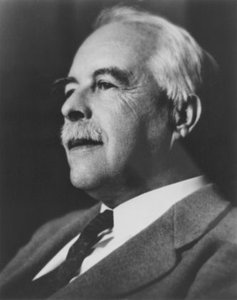A Quote by Lawrence Joseph Henderson
A … difference between most system-building in the social sciences and systems of thought and classification of the natural sciences is to be seen in their evolution. In the natural sciences both theories and descriptive systems grow by adaptation to the increasing knowledge and experience of the scientists. In the social sciences, systems often issue fully formed from the mind of one man. Then they may be much discussed if they attract attention, but progressive adaptive modification as a result of the concerted efforts of great numbers of men is rare.
Quote Topics
Adaptation
Adaptive
Attention
Attract
Between
Both
Building
Classification
Concerted Effort
Descriptive
Difference
Discussed
Efforts
Evolution
Experience
Formed
Fully
Great
Grow
Increasing
Increasing Knowledge
Issue
Knowledge
Knowledge And Experience
Man
May
Men
Mind
Modification
Most
Much
Natural
Natural Science
Natural Sciences
Numbers
Often
Often Is
One Man
Progressive
Rare
Result
Sciences
Scientists
Seen
Social
Social Science
Social Sciences
System
Systems
Then
Theories
Thought
Related Quotes
The social sciences offer equal promise for improving human welfare; our lives can be greatly improved through a deeper understanding of individual and collective behavior. But to realize this promise, the social sciences, like the natural sciences, need to match their institutional structures to today's intellectual challenges.
Almost everyone... seems to be quite sure that the differences between the methodologies of history and of the natural sciences are vast. For, we are assured, it is well known that in the natural sciences we start from observation and proceed by induction to theory. And is it not obvious that in history we proceed very differently? Yes, I agree that we proceed very differently. But we do so in the natural sciences as well.
The prime lesson the social sciences can learn from the natural sciences is just this: that it is necessary to press on to find the positive conditions under which desired events take place, and that these can be just as scientifically investigated as can instances of negative correlation. This problem is beyond relativity.
I am a taxonomist, I work in the descriptive, narrative sciences of natural history. Unfortunately there is this status ordering from physics, the queen of the sciences up on top, down through a bunch of squishy subjects, ending up with sociology and psychology on the bottom. Palaeontologists are not much above that in their conventional ordering.
After years of work in both areas of study, I concluded that the social sciences were different, in many important ways, from the natural sciences, but that the same scientific methods were applicable in both areas, and, indeed, that no very useful work could be done in either area except by scientific methods.






































